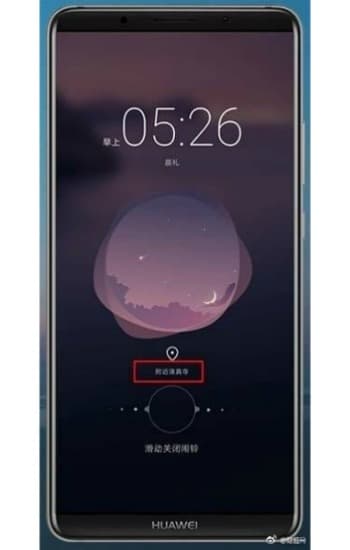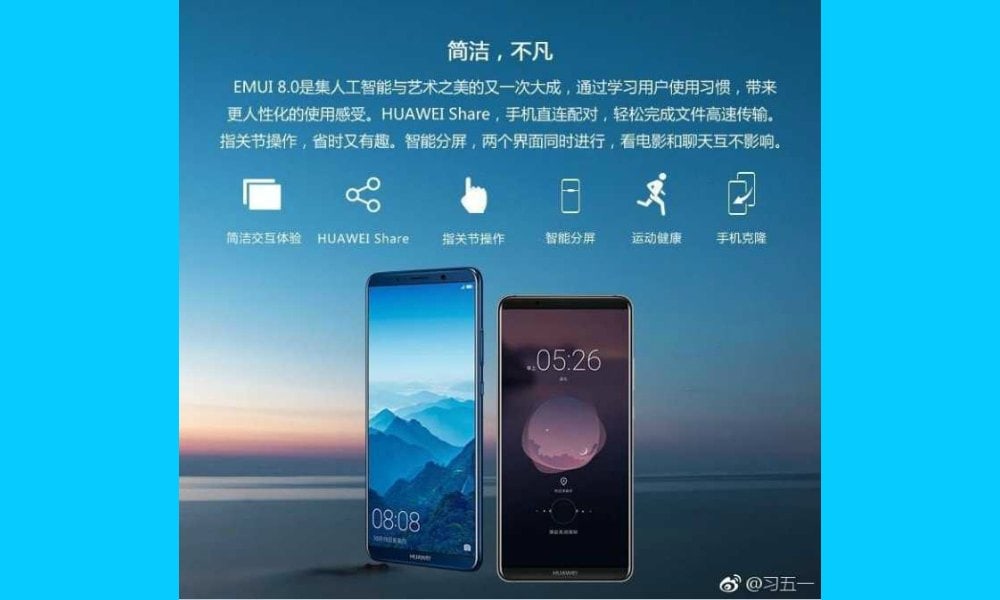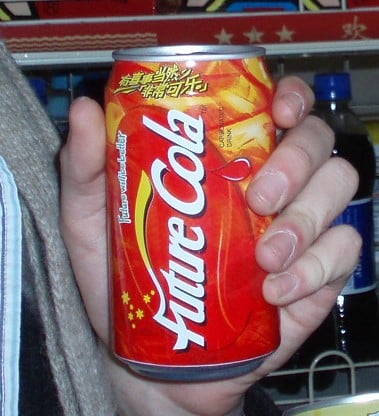The built-in Muslim prayer reminder function on one of Huawei’s latest smartphone models has stirred controversy online. But Huawei’s response to the issue has now become a bigger controversy than the function itself.
A commercial for Huawei’s popular smartphone model the ‘Mate 10 Pro’ has been met with harsh criticism earlier this week.
Chinese English-language media outlet Sixth Tone reports on Friday that controversy around the Huawei phone started when a Chinese poster for the new model showed the Mate 10 Pro’s prayer reminder for Muslims alongside a function to locate nearby mosques. Author Lin Qiqing notes that “Chinese Islamophobes take issue with Huawei’s new smartphone” and that its prayer alarm feature “irks the irreligious and intolerant.” (The article has since been removed from the Sixth Tone website.)
Huawei, however, believed that netizens’ “vicious attack” on the company was the result of a targeted campaign by people who deliberately “distorted the facts.” They described the angry commenters as an “Internet water army” (shuijun 水军): a group of online ghostwriters paid to post comments to manipulate a company’s public relations. They also threatened to take legal actions against these commenters.
The company issued the statement on November 16, saying that the model with the alarm function would not be available on the Chinese market and that the alarm function is specifically designed for customers in overseas regions. They later removed the commercial from their website and from all other online platforms.
“Don’t discredit netizens by labeling us as a ‘water army.'”
Online commenters denied the criticism on Huawei was part of a larger conspiracy against the brand. “Don’t discredit netizens by labeling us as a ‘water army,'” one popular comment on Weibo by microblogger @Zhuzhou (@煮肘) says. The netizen, who received much backing, also writes that “companies should not contribute to spreading religion.”
Huawei is one of China’s most popular smartphone brands. Its model Huawei Mate 10, the follow-up to last year’s Mate 9 along with the Huawei Mate 10 Pro, became a trending topic on Weibo in October, with the hashtag #华为Mate10# receiving over 480 million views in some days time.
On Weibo, many commenters say that they feel that brands such as Huawei should maintain a neutral image.
One blogger wrote: “That Huawei has added a smartphone function to remind Muslims to pray is actually a small thing, causing a big wave [of controversy] online. Technology companies should indeed take a neutral position in their design, and should not build in this kind of special religious (..) functions. It is really easy to design an app for prayer reminder; Huawei is doing more than it should.”
“A recurring keyword in these online discussions is ‘halalification.'”
The latest Huawei controversy follows consecutive online controversies in China over the past years concerning companies or institutions adapting to the diet or lifestyle of Muslim communities.
Earlier this year, delivery app Meituan sparked online anger when it introduced separate boxes for its halal food deliveries. Many netizens said the measure discriminated against non-Muslims, or said that if there are special boxes for food for Muslims, there should also be special boxes for food for Buddhists, Daoists, atheists, etc.
In September last year, the introduction of special “Muslim-only” shower cabins at a Chinese university also provoked anger about alleged “Muslim privilege.”
A recurring keyword in these kinds of online discussions is “qīngzhēn fànhuà” (清真泛化). It basically means ‘halal-ification’ or ‘halal generalization,’ but because qīngzhēn also means ‘Islamic,’ it can also imply ‘Islamization.’
Those who oppose the spread of halal food or special services for Muslims in the PRC connect the normalization of Islamic dietary laws and lifestyle to an alleged greater societal shift towards Islam.
In response to heated discussions and growing online anti-Islamic sentiment, Chinese authorities blocked various online words that are considered demeaning to Muslims in September of this year for “undermining ethnic unity.”
“I do not understand why a customized service for Saudi Arabia would appear on the official Chinese Huawei website.”
On Weibo, the ‘Huawei incident’ or ‘Mate 10 Incident’ (mate10事件) has become a much-discussed topic, especially after Huawei issued its statement that the phone with the built-in prayer and mosque locator function was designed for overseas usage.
Many netizens are angry about Huawei’s response to the issue, not just because they took the criticism as an organized attempt to smear the brand’s image, but also because they did not explain why a function meant for overseas markets would be advertised within China.

“5:26: morning prayers.”
Netizen @GoogleMuqin (@google木沁) writes:
“This is my attitude about the mate10 incident:
1. I do understand that Huawei releases customized products for Muslim countries such as Saudi Arabia, and I support that.
2. I do not understand why a customized service for Saudi Arabia would appear on the official Chinese Huawei website.
3. And I loathe the patronizing attitude of Huawei in responding to this issue.”
The ‘alarm clock incident’ is triggering so much criticism online, that many people consider it a ‘PR crisis’ for Huawei.
“I think that people are not so much upset about whether or not the phone has this function or not, but they are more upset about Huawei’s reaction to this issue,” one commenter says: “If this function is not available in China, why did Huawei advertise it on so many platforms in China, is this not misleading conduct?”
There are also people who do not understand what all the fuss is about in the first place: “As a Huawei user, I am not offended at all by this function. I have many Muslim friends, and they respect my preferences and I respect their religion.”
It’s all just business, many also say: “There are 1.6 to 2.1 billion Muslims in this world. China also has some twenty million. As a commercial company, it is understandable that Huawei does this.”
One netizen (@夜光边) writes: “This is not a sign of Huawei’s friendly relations with Muslims (..), it is just a sign that they are targeting Muslims as their customers. If you’re not Muslim, then just don’t use this function. It won’t affect you at all.”
By Manya Koetse
@manyapan
Spotted a mistake or want to add something? Please let us know in comments below or email us.
©2017 Whatsonweibo. All rights reserved. Do not reproduce our content without permission – you can contact us at info@whatsonweibo.com.


 China Memes & Viral3 months ago
China Memes & Viral3 months ago
 China Books & Literature12 months ago
China Books & Literature12 months ago
 China Insight6 months ago
China Insight6 months ago
 China Memes & Viral10 months ago
China Memes & Viral10 months ago





















Sarfaraz
November 24, 2017 at 11:04 am
Good day!
Basically, Muslims have time bounded pray within 24 hours a day. example:
1. Morning: After Dawn till before sun rise
2. Noon: When the sun on peak time
3. Afternoon: Almost the shade of the person 2 times of his height
4. Evening: After Sunset till before darkness.
5. Night: The darkness of the night till before Dawn.
So, we have offer pray within stipulated time. I think there is no religion who binds their follower to follow the pray within given time.
I personally appreciate Huawei app, which is ease to perform the pray and none of any Muslim criticize to non-Muslim about their pray.